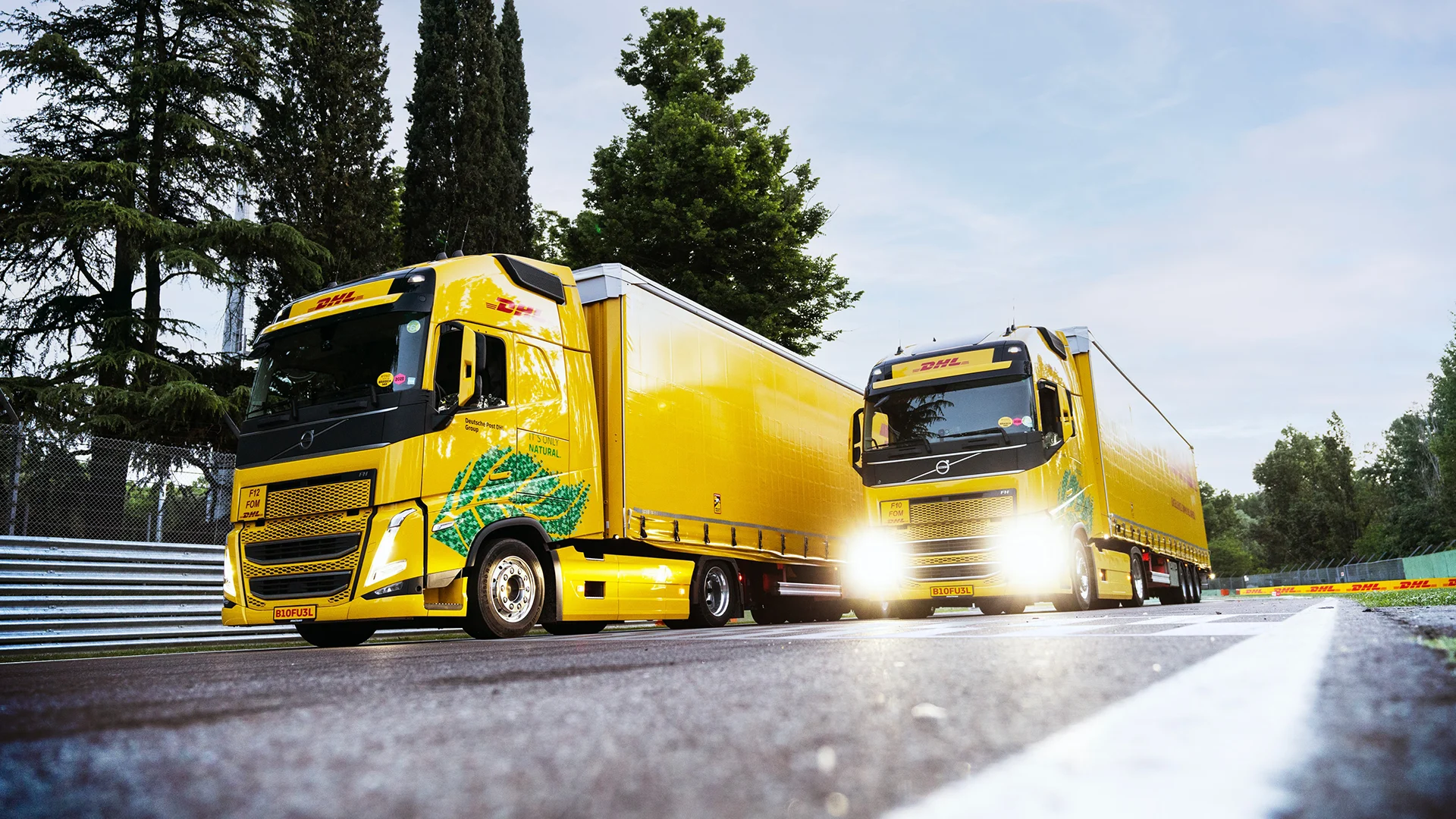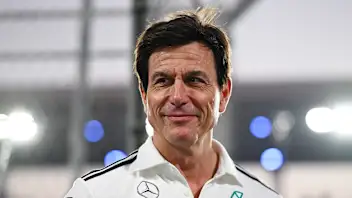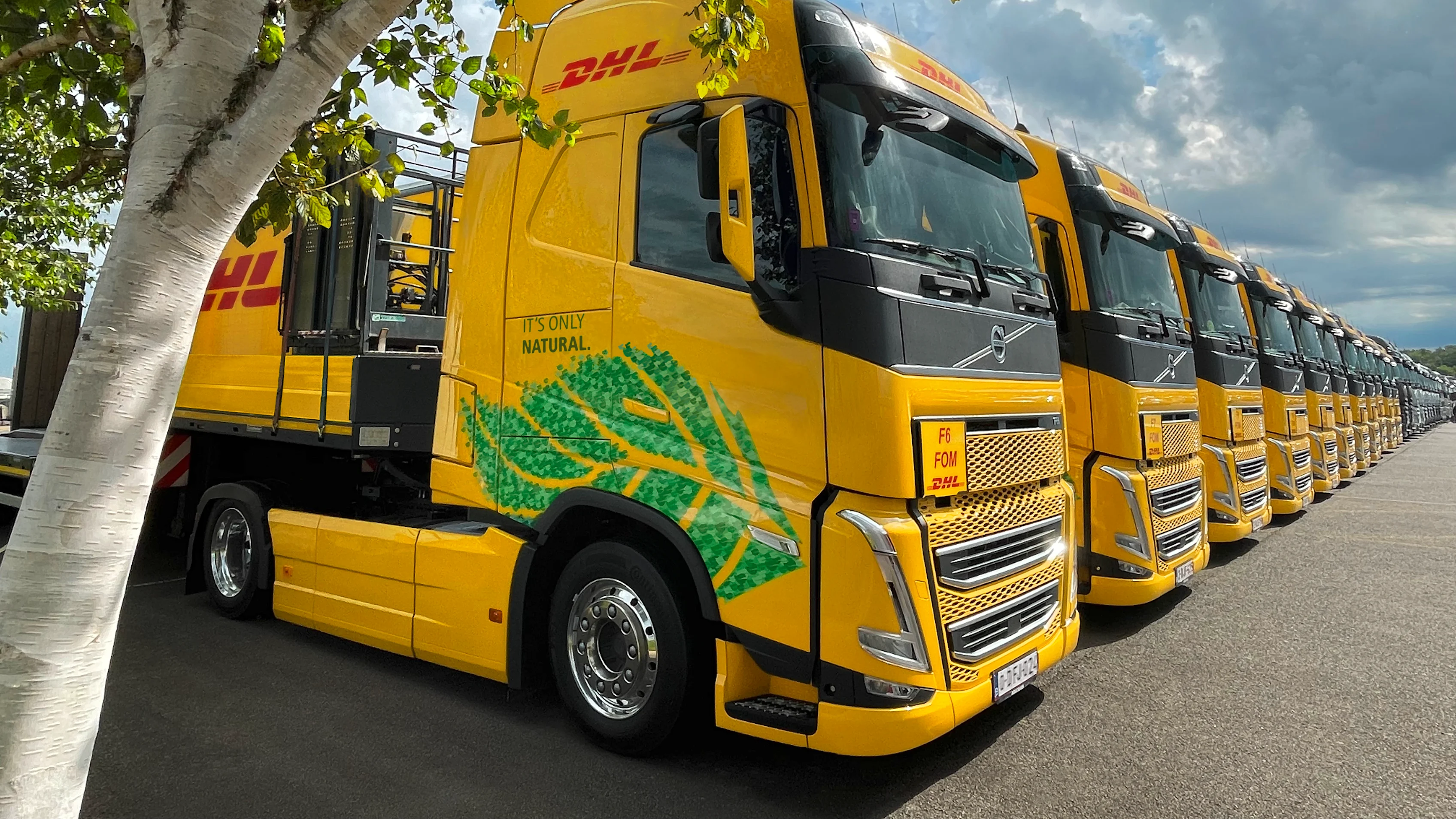Formula 1 has announced that DHL’s new fleet of trucks running on biofuel reduced carbon emissions by an average of 83% compared to fuel-driven trucks during the European leg of the 2023 season.
Across the nine European rounds, 18 trucks were powered by HVO100 drop-in fuel (hydrotreated vegetable oil) and travelled more than 10,600 km, transporting an average of 300 tonnes of vital freight per race.
READ MORE: How logistics experts DHL are helping Formula 1 hit their Net Zero by 2030 target
These trucks maintain the same level of performance in terms of load capacity and travel distance as their diesel counterparts and each truck in the DHL fleet is equipped with GPS to monitor fuel consumption and optimise more efficient routes.
A voluntary certification organisation approved by the European Union calculated the 83% figure through a certification of carbon emissions.
The project demonstrates how the collaboration between F1 and Global Logistics Partner DHL is using the latest technologies and new ways of working to ensure the delivery of events in a more sustainable manner.

Biofuel will continue to be used in 2024 and beyond, with the data from this summer providing invaluable insight as F1 and DHL explore further opportunities and sustainable innovations. The trucks also represent a small part of the many pieces being used by the sport as it moves towards being Net Zero by 2030.
“It is great to see how our logistics operations can transform to achieve our Net Zero by 2030 goal,” said Ellen Jones, Head of Environment, Social and Governance at F1.
“Reductions such as 83% with the use of the biofuel-powered trucks provide a fantastic platform to build upon, which we will analyse and then continue to deliver in our 2024 season, ensuring that these savings move from a single initiative to business-as-usual carbon reductions.
“Transport and logistics make up a significant portion of our carbon footprint in our sport, and it is crucial to have likeminded partners like DHL that are committed to working with us to drive these down and help us realise our Net Zero target.”
Paul Fowler, Head of DHL Motorsports Logistics, added: “The introduction of 18 new biofuel-powered trucks this season marks a significant stride towards a more sustainable future for both Formula 1 and DHL.
“Achieving an 83% average reduction is a remarkable accomplishment, and we take great pride in it. As the Official Logistics Partner for Formula 1 and a leader in green logistics, we are pleased to contribute to Formula 1’s sustainability goals.”
Net Zero Carbon: How Formula 1 is going to meet this ambitious target by 2030
In 2026, alongside the introduction of the next-generation hybrid engine, F1 cars will be powered by advanced sustainable fuel, following on from this year’s F2 and F3 championships being powered by 55% sustainable fuel in partnership with Aramco.
Due to the development from the sport’s energy suppliers, this could have a hugely positive impact on the wider automotive and transport industry thanks to drop-in capabilities.
Next Up
Related Articles
 Team Previews 2026All you need to know about Williams
Team Previews 2026All you need to know about Williams Wolff admits Mercedes ‘simply don’t know’ what rivals can do
Wolff admits Mercedes ‘simply don’t know’ what rivals can do Newey ‘always teaching us something’ – Alonso
Newey ‘always teaching us something’ – Alonso.webp) Williams FW48 hits the track for first time at Silverstone
Williams FW48 hits the track for first time at Silverstone F1 AcademyAudi retain Felbermayr for second season in 2026
F1 AcademyAudi retain Felbermayr for second season in 2026.webp) Doohan joins Haas as reserve driver for 2026
Doohan joins Haas as reserve driver for 2026
